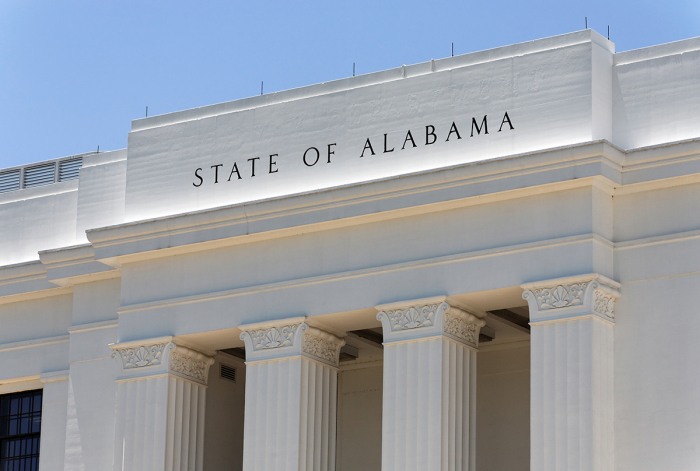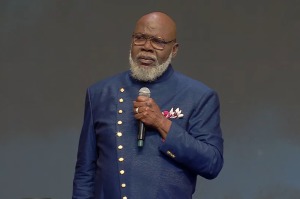Alabama can ban trans surgeries, puberty blockers for kids, appeals court rules

An appeals court panel has unanimously ruled to end a block on an Alabama law that bans the use of body-mutilating sex-change surgeries and experimental drugs for youth suffering from confusion about their sex.
In a decision released Monday, the United States Court of Appeals for the 11th Circuit unanimously upheld the right of Alabama to enforce the state’s Vulnerable Child Compassion and Protection Act.
Circuit Judge Barbara Lagoa, a Trump appointee, authored the panel opinion, concluding that “the district court abused its discretion in issuing this preliminary injunction because it applied the wrong standard of scrutiny.”
“The plaintiffs have not presented any authority that supports the existence of a constitutional right to ‘treat [one’s] children with transitioning medications subject to medically accepted standards,’” wrote Lagoa.
“Because the district court erred by reviewing the statute under a heightened standard of scrutiny, its determination that the plaintiffs have established a substantial likelihood of success on the merits cannot stand. We therefore vacate the preliminary injunction.”
Circuit Judge Andrew L. Brasher, another Trump appointee, authored a concurring opinion, critiquing the claim that the law violates the equal protection given to people on the basis of sex.
“[A]n injunction against the enforcement of Alabama’s law under equal-protection principles will not equalize burdens or benefits between girls and boys,” wrote Brasher.
“It will not require the government to treat boys and girls the same. It will merely force Alabama to either ban puberty blockers and [opposite-sex] hormones for all purposes or allow them for all purposes.”
Alabama Attorney General Steve Marshall issued a statement on Monday celebrating the appeals court panel decision, considering a victory for defending the wellbeing of children.
“The Eleventh Circuit reinforced that the State has the authority to safeguard the physical and psychological wellbeing of minors, even if the United States Attorney General and radical interest groups disapprove,” stated Marshall.
“Alabama takes this responsibility seriously by forbidding doctors from prescribing minors sex-modification procedures that have permanent and often irreversible effects. This is a significant victory for our country, for children, and for common sense.”
The families challenging the law are being represented by the Human Rights Campaign, GLBTQ Legal Advocates & Defenders, the National Center for Lesbian Rights, the Southern Poverty Law Center, King & Spalding LLP and Lightfoot, Franklin & White LLC.
In a joint statement released Monday, the LGBT advocacy groups denounced what they called “a deeply disappointing decision” in which the plaintiffs were “devastated by this decision.”
“While this is a setback, we are confident that it is only a temporary one. Every federal district court that has heard the evidence presented in these cases has come to the same conclusion: these medical treatments are safe, effective, and lifesaving for some youth, and there is no legitimate reason to ban them,” they stated.
“Parents, not the government, are best situated to make these medical decisions for their children. These laws are a shocking example of government overreach and a jarring intrusion into private family decisions. This case is far from over, and we will continue to aggressively seek legal protection for these families.”
In April of last year, Alabama Gov. Kay Ivey signed the ban on trans surgeries and drugs for minors into law, with the legislation originally scheduled to take effect on May 8.
The new law bans genital mutilation surgeries and prohibits doctors from prescribing experimental puberty blockers for children, making it a felony that carries a punishment of up to 10 years in prison.
Last May, U.S. District Judge Liles Burke, also a Trump appointee, issued a preliminary injunction that blocked enforcement of the experimental drugs, though it kept the surgery ban in place.
Burke argued that the plaintiffs were “likely to show that they have a fundamental right to treat their children with transitioning medications subject to medically accepted standards.”
“The Act prevents Parent Plaintiffs from choosing that course of treatment for their children by criminalizing the use of transitioning medications to treat gender dysphoria in minors, even at the independent recommendation of a licensed pediatrician,” wrote Burke last year.
“While Defendants offer some evidence that transitioning medications pose certain risks, the uncontradicted record evidence is that at least twenty-two major medical associations in the United States endorse transitioning medications as well-established, evidence-based treatments for gender dysphoria in minors.”





























